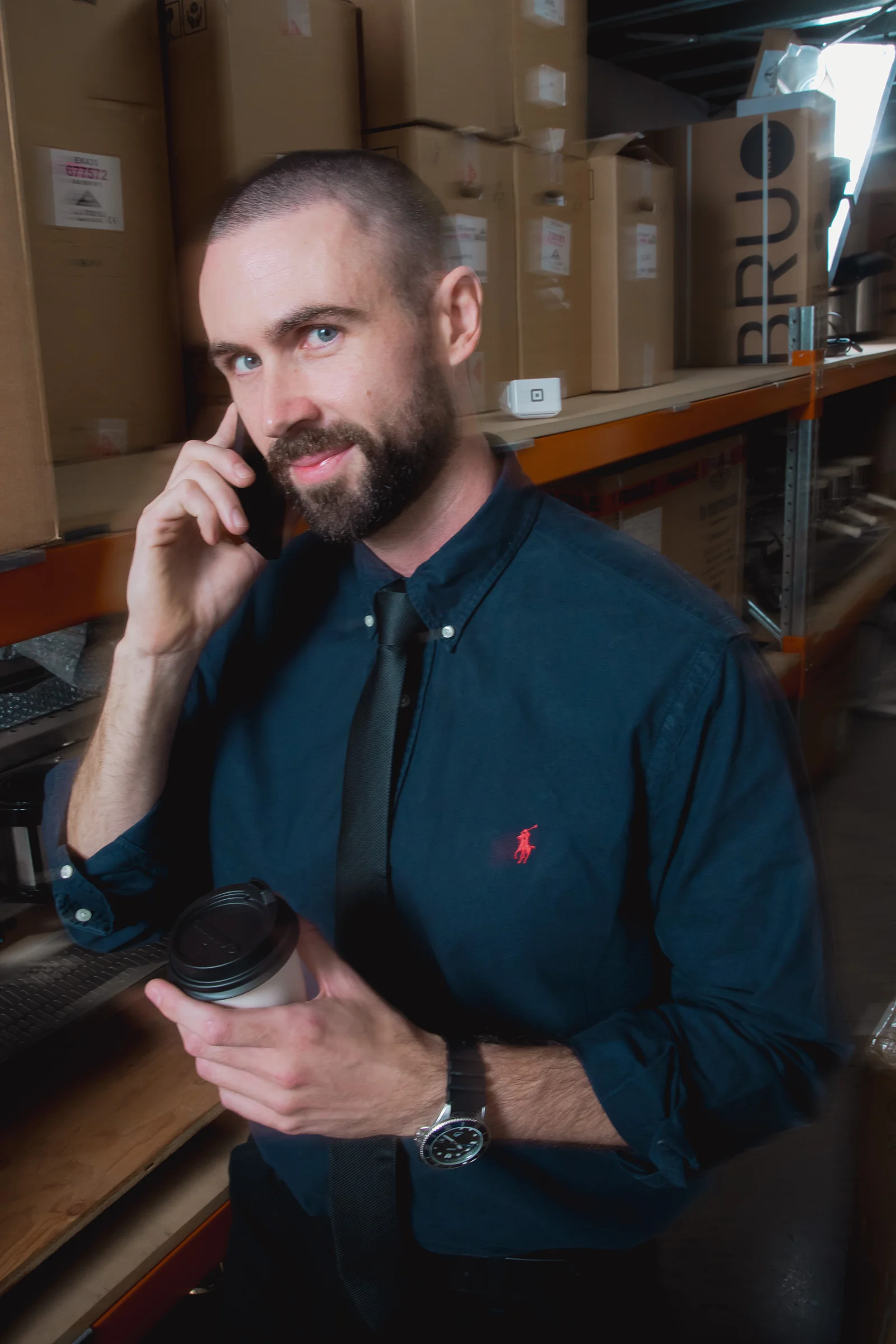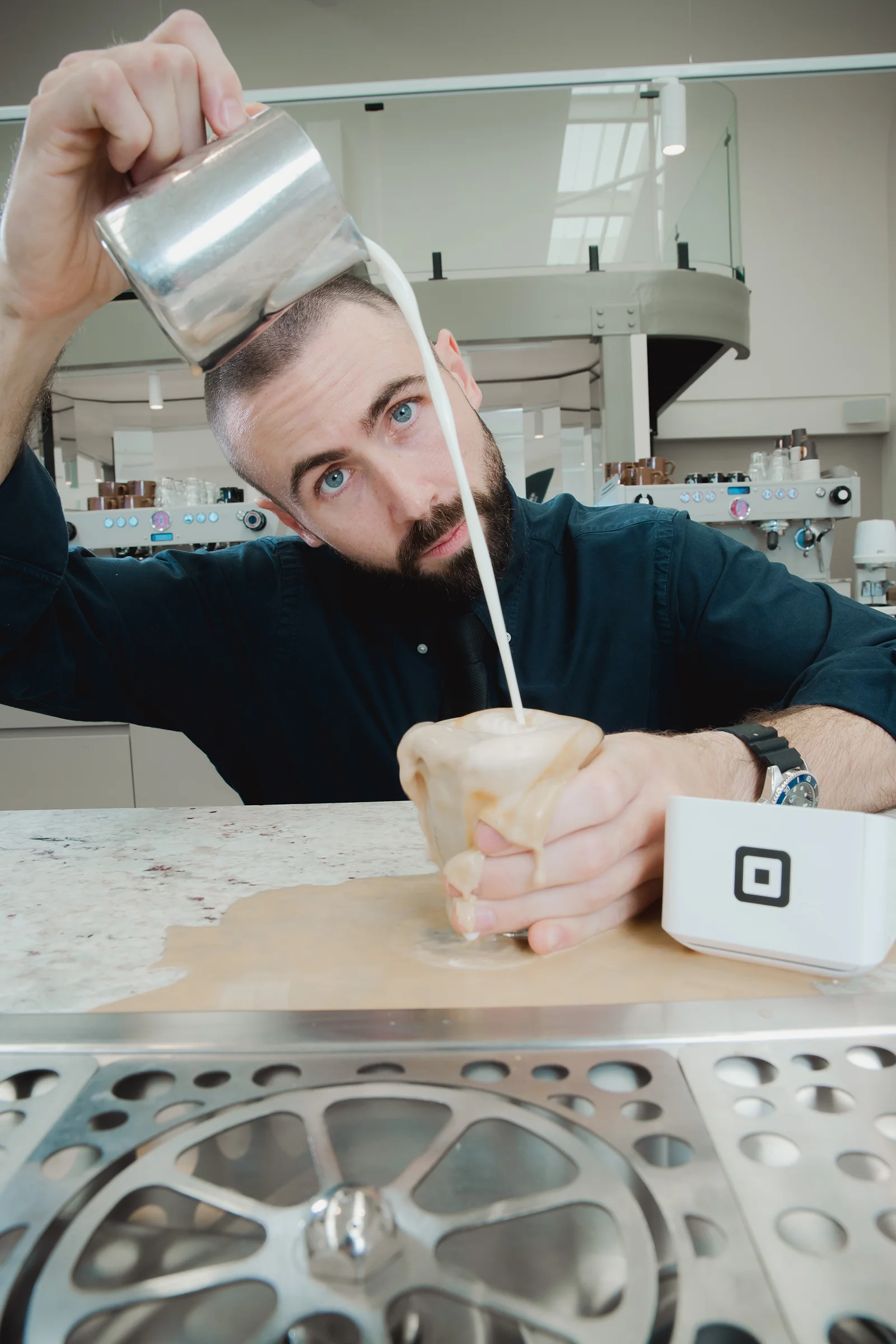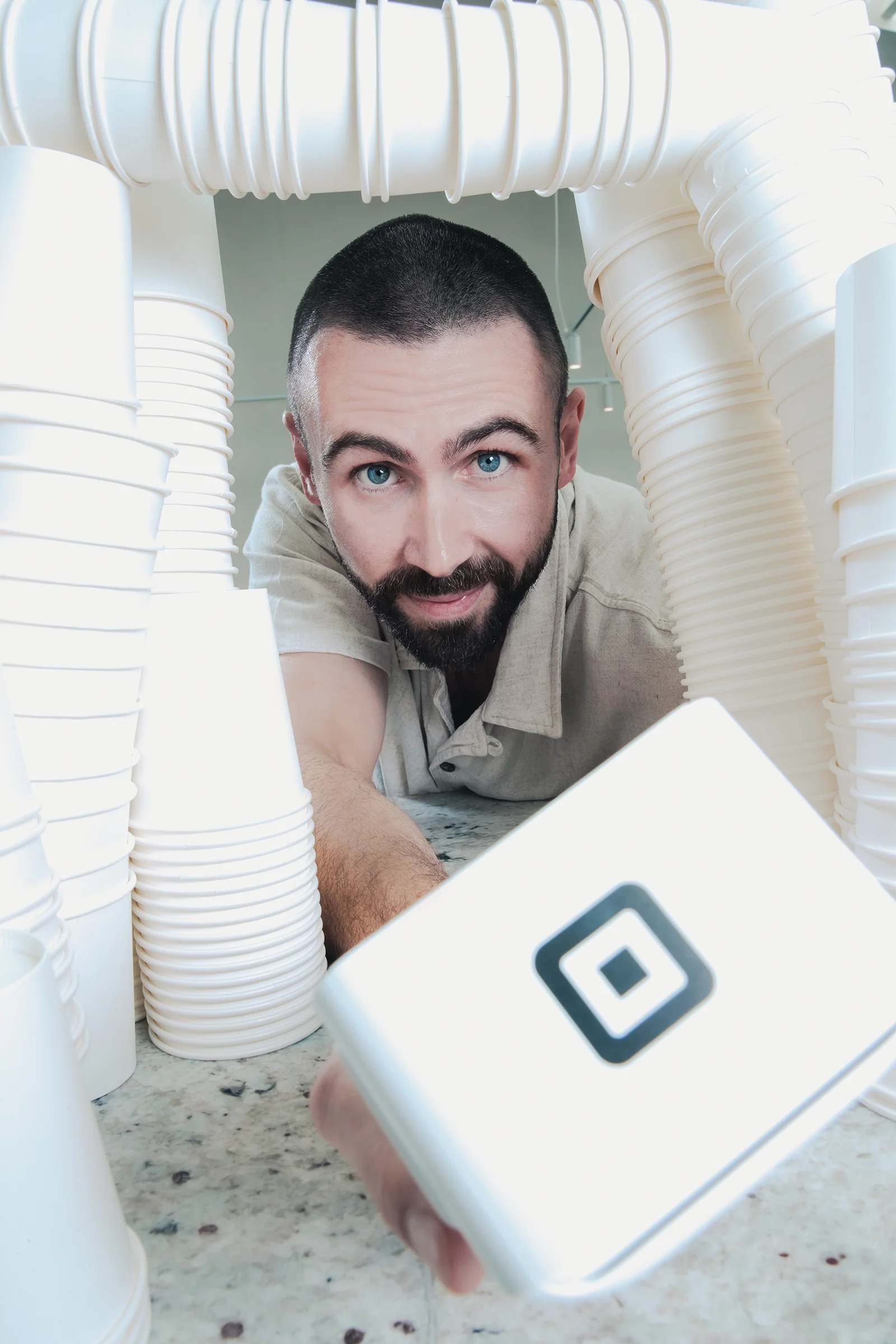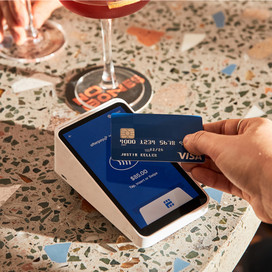What makes a café more than just a stop for coffee? For Co-Founder of Calibrate Coffee, Josh Edwards, the journey from barista to multi-venue owner has been about more than perfecting the latte rosette—it’s been about creating spaces that invite, inspire, and function seamlessly. From designing layouts that are aesthetic yet efficient to balancing the rising costs of labour and ingredients, Josh shares the hard-earned lessons that have shaped his approach to hospitality. Discover how he’s learned to balance passion and practicality in a challenging industry—and why it all comes down to making people feel at home.
Hey Josh! You opened your first venue in 2018 and have since added two more, the most recent just last year. How has your approach to creating inviting spaces evolved over time?
Six years and three venues in, we’ve gained a better understanding of how our spaces need to flow. Over the years, we’ve learned to optimise layouts for our unique workflow and service style, making it easier for both our team and guests to move around comfortably. This includes maximising working surfaces, improving FOH-BOH connections to reduce labour costs, refining the café’s aesthetic, and generally creating spaces that feel better to be in. Each venue has become a more enjoyable and efficient environment for everyone involved.
When designing a café, how do you balance aesthetics with functionality? Can you share specific examples?
At our latest venue, Coffee First in Seaforth, we started with the intention of creating a space that maximised functionality while minimising labour needs, all without compromising the guest experience or visual appeal.
One example is our central bench, which runs through the middle of the café. We deliberately designed the gap between the kitchen and bar to allow the team to access the floor quickly without being obstructed. We also added a guest water station, enabling guests to help themselves and reducing the need for staff to deliver water to tables. Additionally, we incorporated storage under seating to keep essentials on hand, saving time spent retrieving items from storerooms. These small yet intentional design choices make the space highly functional while maintaining a welcoming atmosphere.


You’ve mentioned the importance of how your spaces make people feel. Can you elaborate on this?
It’s so important to have emotion and guest-experience in mind when designing a venue like ours (or anyone’s). For us, designing a café isn’t just about aesthetics or workflow—it’s about how people feel when they walk in. Guests choose to spend their time and money in spaces that feel inviting and comfortable, not just because of a great barista or excellent coffee. It’s about creating a space where people feel at ease the moment they step inside.
When we approach a new venue, we don’t focus on specific “fixes” but rather the overall atmosphere. Think about it like house hunting: when you go to look at an open home, you like to have nice natural light. How’s the floor plan? Does it make me feel like I’m at home and I want to be here? You want a space that doesn’t weigh on you—you’re drawn to natural light, thoughtful layouts, and spaces that make you feel good. Cafés work the same way. For instance, we once inspected a site with ceilings so low they were almost oppressive. We immediately knew it wouldn’t work—no one wants to sit in a space that feels cramped or uncomfortable. By putting ourselves in our guests’ shoes, we can analyse every detail that might affect their experience and design a space that feels right.
If you embrace that thought process in our cafés and design, at the very least you escape having a space that makes you feel uncomfortable—you have a space that makes people want to stay.
You’ve transitioned from barista to owner. What’s been the biggest challenge in that shift?
The transition from skilled barista to owner is both exciting and overwhelming. You move from focusing solely on your craft to managing an array of responsibilities you might not have been fully aware of before—paying bills, managing suppliers, hiring staff, and ensuring the business runs smoothly.
You’re still trying to make the perfect latte, but now you’re also juggling emails, fumigation schedules, and financial planning. If you’re not prepared to step back and think about the bigger picture—how to grow the business and build a team—you can easily get stuck in the day-to-day grind.
For those who thrive on challenges and want to build something meaningful, the journey is incredibly rewarding. It’s not just about mastering your craft; it’s about enabling others to do the same while growing as a leader and a person.
The idea of a ‘boss’ is not one of being at the top—it’s being in service to your team, your guests, and your business.”
Josh Edwards → Co-Founder, Calibrate Coffee
How has teaming up with a big operator like Gabriel Coffee helped grow your business?
Having partners with aligned values and work ethics has been crucial. Jack and I share a strong partnership, which has allowed us to grow together as business owners. This foundation has helped us not only manage day-to-day tasks but also focus on the aspects of the business we’re passionate about.
Partnering with Gabriel Coffee and working closely with mentors like Sam and Jack has been transformative. Sam’s business acumen and passion for coffee have been invaluable, helping us avoid many pitfalls. His mentorship taught us lessons we might have otherwise learned the hard way.
Particularly in his approach to finding a balance between your passion and pursuit of perfection for the craft and business efficiencies – which are two forces that can often be at odds. Sam has been great at reminding us of what’s important, that it matters to focus on the craft, the skill and also the decisions that are going to be the best for this business. What he also taught us, is the easier the coffee-making process is, the more opportunity myself and the team have to focus on the customer experience (while also keeping wastage low and service speed fast). Saying hello, and building relationships, which is almost if not just as important. Sam’s Gabriel Coffee is so high quality and so forgiving, that it enables us to do this with ease and safeguards our quality.


Let’s talk numbers. What does the financial balancing act of running a café look like, especially with coffee pricing and food revenue?
Labour costs are our biggest challenge, often sitting between 40–50% of revenue. To address this, we’ve introduced measures like a 10% weekend surcharge to offset higher wages. While most guests understand, there’s always the occasional grumble.
Coffee margins are razor-thin—sometimes just 5%. The only way to make the numbers work is by keeping food costs under 25%. For example, I remember when we opened our first shop in the city and had a ham and cheese toastie on the menu—triple-smoked ham and Mercy Valley cheddar. We were selling it for $10, but I didn’t fully understand kitchen operations back then. When we looked at the cost of goods, we realized it was an $8 sandwich. That price didn’t even account for labour costs, meaning we were losing money on every sale. It was a delicious toastie—I still make it for myself at home occasionally—but I wouldn’t put it on the menu today.
Balancing these factors requires transparency with guests and thoughtful menu design. It’s about ensuring we offer value while maintaining profitability.
During the COVID lockdowns, you worked for other businesses. How did that experience influence your perspective as an owner?
Working for others during lockdowns reinforced the importance of communication, leadership, and team culture. At one venue, I saw how poor communication and lack of follow-through led to frustration and turnover. In contrast, working with Justin Newton at House Made Hospitality was eye-opening. He demonstrated how empowering teams and fostering a positive culture creates a better work environment for everyone.
These experiences emphasised the importance of giving teams the tools they need to succeed and treating their time and work with respect. A supportive environment doesn’t just benefit employees—it strengthens the entire business.
How have you adapted your systems and procedures as your business has grown?
Scaling up means stepping back from daily operations and building robust systems that empower your team to maintain consistency. It’s a big shift—from being hands-on every day to focusing on training, systems, and processes.
We’re upfront with new team members: we have systems in place for a reason, but we’re always open to improvement.
If someone brings us a better way to do something, we’ll adopt it. Businesses need to evolve with the market, and being stuck in the past can be costly.”
Josh Edwards → Co-Founder, Calibrate Coffee


Looking back, what’s been the most surprising lesson you’ve learned as a café owner?
How much you don’t know. It’s a humbling realisation, but it’s also what keeps the journey interesting.
Working with Square has been integral to that journey. We are baristas that have started making coffee and toasting sandwiches. Three cafes and six years later we are building menus, refining operations, training teams and using data analytics to optimise our business success. We have gone from just needing a POS to sell products, to using sales data to rewrite menus, write rosters more effectively, predict sales success, budget and streamline systems and procedures.
The analytics is really a huge one for us. With Square’s integrated dashboard, I’m able to see where our cash is going in and where it’s flowing. I’ve never been much of a data guy myself so being able to look over these reports quickly and simply has made it so much easier for us to learn where we can afford to trim back, what products are serving us best and how we can elevate them, where we may need more staff and where potentially we can afford to stay leaner. In short, as our business has grown and we have had to learn to work smarter, Square has been that tool that has allowed us to do that.
What advice would you give to new café owners about balancing day-to-day operations with long-term growth?
Invest in a team that can handle daily operations, so you can focus on growth. If you take care of your team, they’ll take care of your business.
Calibrate Coffee is a proud Square seller. Explore more expert hospitality knowledge via our In Service series.
![]()










